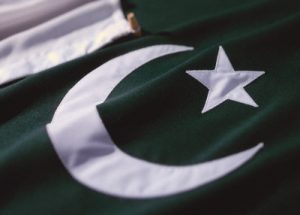The Financial Action Task Force (FATF) is set to review Pakistan’s progress on its action plan when the body meets for its three-day plenary meeting, staring on February 22. The upcoming meeting is expected to make a final decision on whether to keep Pakistan on its grey list or move it out.
FATF has given Pakistan ample time to make progress on the action plan handed to the country. The country was placed on the grey list in June 2018 for failing to implement effective measures to stop terror financing and money laundering in the country.
Over the last two years, Pakistan has made significant progress to address many legislative gaps and clamped down on militant groups that have risen on FATF’s agenda. In February 2020, the organization expressed reservations over “Pakistan’s failure to complete its action plan in line with the agreed timelines and in light of the terrorist financing risks emanating from the jurisdiction.” The FATF in its statement said it while Pakistan had completed 14 out of 27 action items, the forum strongly urged Pakistan to “swiftly complete” its full action plan by June 2020.
In the October 2020 review, the watchdog said Pakistan “successfully complied with 21 out of 27 points of the action plan but decided to keep the country on its grey list until February 2021.”
Pakistan has reportedly worked hard on the remaining six points and expects a favorable decision at the upcoming meeting. “From our side, we are very sure that all the benchmarks set in FATF Action Plan have been achieved. We have exhausted all possible options to make sure that all the 27 requirements are met and we believe we have achieved this target. Now it’s up to them (FATF) how they see the progress we have made and what decisions they take,” a senior government official told Business Recorder.
Over the last few months, Pakistan arrested around 751 people from Khyber Pakhtunkhwa (KP) province to achieve the FATF’s targets. Last month, Pakistan also arrested the leader of the Lashkar-e-Taiba (LeT), Zaki-ur-Rahman Lakhvi who is accused of planning the 26/11 Mumbai attacks.
The statements coming from top official circles indicate that Pakistan is confident of the progress made after the last meeting. Pakistan’s Foreign Minister Shah Mahmood Qureshi told the Senate last week that he expects a decision “in favor of Pakistan.” On Friday, the spokesperson of Pakistan’s foreign office, Zahid Hafez Chaudhri, said in a press briefing that “In the remaining six partially addressed items, significant progress has been made by Pakistan, which is duly acknowledged by the wider FATF membership.” Referring to progress made by Pakistan ahead of the February meeting, another Pakistani official at FATF said “If the watchdog still keeps Pakistan in the grey list in this review, we will surely get out in the next review expected to take place in the middle of this year.”
As it appears, Pakistan’s fate will come down to the country’s lobbying efforts to win support for its case at the forum. The challenge in this regard comes from India which has been actively trying to push Pakistan onto the blacklist.
So far, Pakistan has avoided being placed on the blacklist with the support of countries including China, Turkey, and Malaysia. To an extent, pressure has been mounting on Pakistan from China to act against militant groups that may have become the focus of lobbying efforts being pursued by India and the United States.
In 2017, the BRICS, which comprises of Brazil, Russia, India, China and South Africa, declared a number of militant organizations allegedly based in Pakistan a regional security threat. In 2018, India reportedly negotiated with China to take back its support in order to place Pakistan on FATF’s grey list. When asked to comment on reports that China had changed its position at FATF to no longer support Pakistan, Chinese foreign ministry spokesman said, “China maintains that the purpose and aim of the FATF is to support countries’ efforts to strengthen institutions against money laundering and terror financing and safeguard the international financing system. We stand ready to work with relevant parties to offer more assistance to Pakistan in this area.”
This essentially means that Beijing’s position has been one of asking for more action from Pakistan while offering its support at the forum when the country has done enough homework to counter India and, perhaps, the United States’ moves there. Arguably, for the upcoming meeting, Pakistan has done enough to get off the grey list and it can bank on China’s support to ensure that.
However, the important question remains: Has Pakistan done enough to effectively convince the forum to remove it from the grey list and can it win Washington’s support, given that the U.S. has traditionally remained a part of India’s lobbying push? Understandably, President Joe Biden wouldn’t be interested in offering complete support to India in the form of pushing for Pakistan’s inclusion on the blacklist. This is partially because it will only harm Washington’s interests in Afghanistan and the ongoing collaboration with Islamabad to secure an exit from the country. Moreover, placing Pakistan on the blacklist could further ruin Pakistan’s struggling economy, something which Washington may not be interested in seeing happen.
On the other hand, Biden wouldn’t be interested in favoring an overt diplomatic effort to move Pakistan out of the grey list. Arguably, the forum’s pressure has kept Pakistan in line vis-à-vis its policy on Kashmir, Afghanistan and the overall progress it has made on countering domestic terrorism and money laundering. The U.S. wouldn’t be averse to a situation where Islamabad remains under watch and widens its implementation criteria for the months to come. Washington would want to see more action from Pakistan in Afghanistan, and could perhaps reward the country with an endorsement later if more time is given to Pakistan at the next meeting.

































